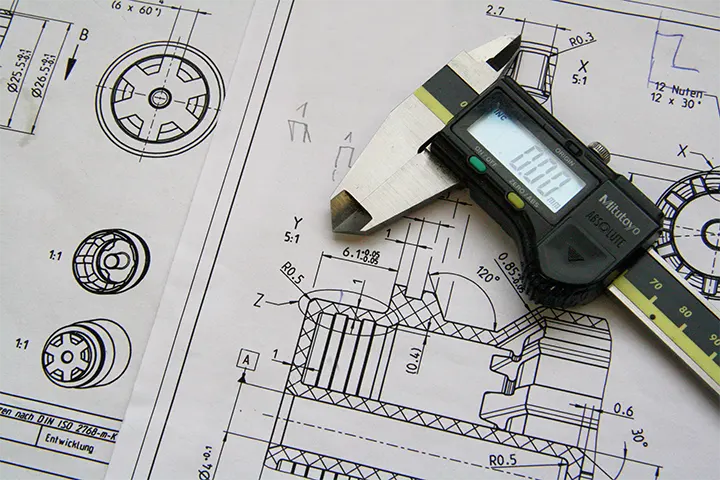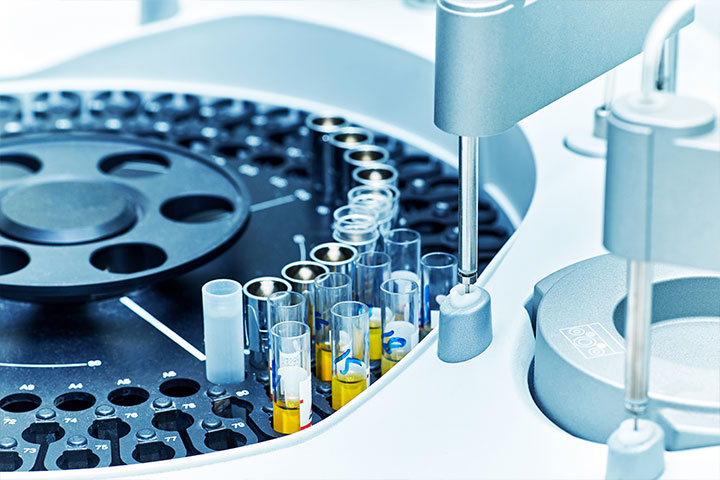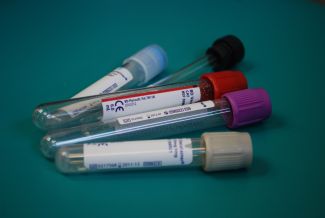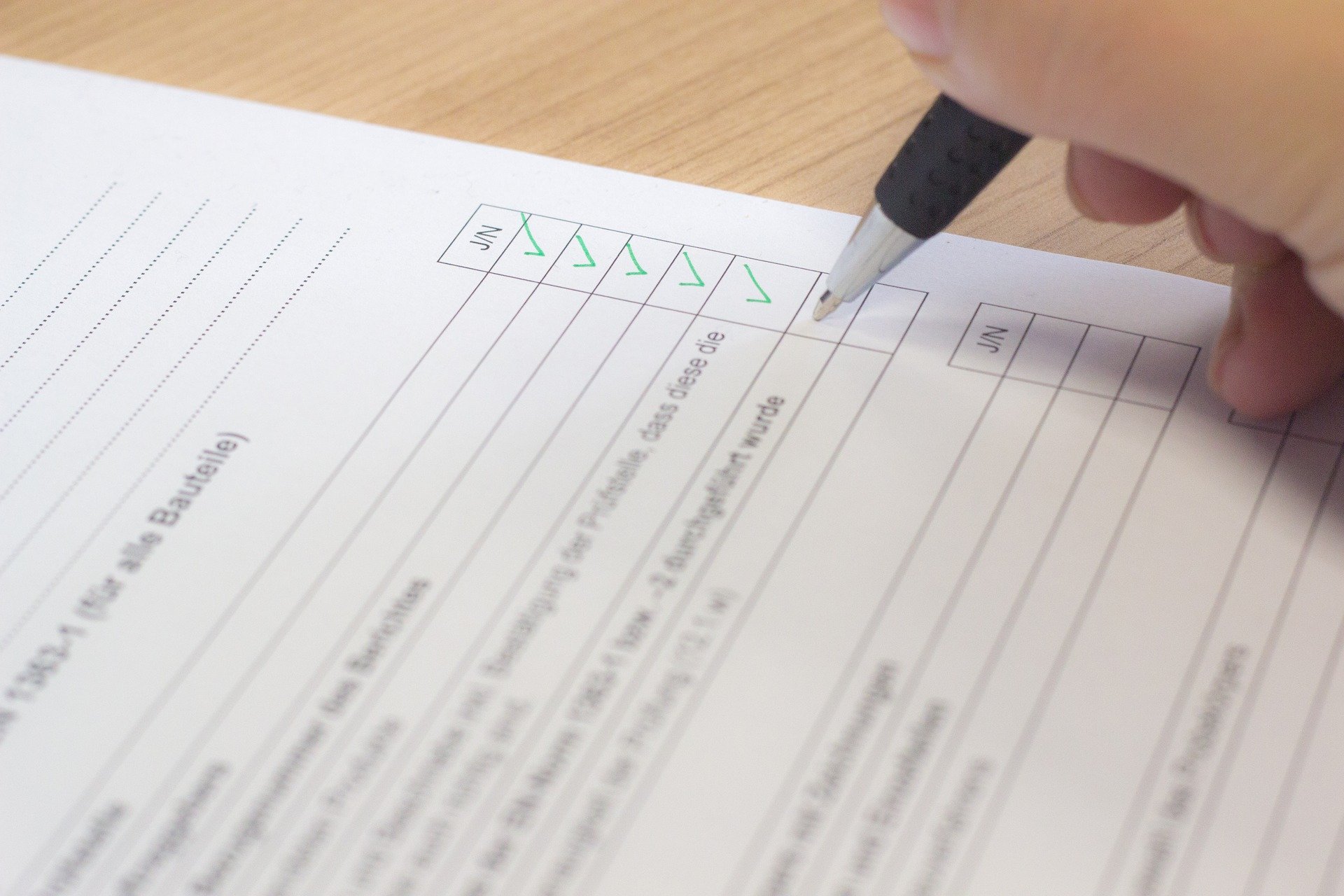
The market of the EAEU countries has long been gaining popularity among European manufacturers. In order to be allowed to sell the goods on the EAWU market, a number of mandatory conformity assessment procedures must be successfully completed.
Besides the EAC certificate some of the Technical Regulations of the EAEU provide for the EAC Declaration as a type of conformity assessment. The main difference is, that the EAC declaration, unlike the EAC certificate, is created and issued by the applicant himself. Both, the declaration and the certificate have the same legal validity.
The procedure of conformity assessment is often a highly complex and time-consuming process that raises many questions for manufacturers and importers. This article aims to help to find answers for these questions. All information provided in this article, bases on the Law № 184 of the Russian Federation "On Technical Regulation" of december 27, 2002 and on the GOST standard 31893-2012 Conformity assessment. Standard system in conformity assessment”.
Steps of the EAC declaration process
- Step: Classification of the product and selection of the relevant standards
- Step: Selection of the scheme of EAC declaration according to which the conformity assessment procedure is carried out
- Step: Conducting tests
- Steps: Preparation of the required documentation if the results are positive
- Step: Issuance of the EAC declaration
- Step: Entry of the declaration and the documents in the Unified Register of the Eurasian Economic Union
Classification of the product and selection of the relevant standards
The registration of an EAC declaration may only be carried out by a company established on the territory of the Eurasian Economic Union. Therefore an authorised representative within the Eurasian Economic Union is required.
If you need an authorized representative, we would be happy to offer you a suitable company to take over this function.
An EAC declaration is issued by a national manufacturer, importer or an authorized representative of a foreign manufacturer. Therefore, the responsibility for the correct classification of the products, the selection of the scheme as well as the execution of the documentation lies with the applicant itself.
Batch (intended for batch delivery): all of the specified quantity of manufactured units with the same name and designation as indicated in the Certificate of Conformity and intended for sale.
Product Unit: A single piece or quantity of product.
These and other definitions related to EAC Conformity Assessment are available in GOST 31894-2012 Terms and definitions in the field of conformity assessment (confirmation).
Selection of the scheme of EAC declaration
All technical regulations contain descriptions of the EAC certification procedure, the so called schemes. The selection of the scheme and therefore the type of the EAC certification procedure depends on the characteristics of the products, the type of production and shipment. The scheme of the EAC declaration is selected by the applicant himself. The schemes of the conformity assessment represent the counterpart of the modules of the conformity assessment according to the EU guidline 768/2008/EG in the Eurasian Economic Union.
| scheme | Product examination | Manufacturing audit | Manufacturing control | Scope of application | Certificate of conformity |
|---|---|---|---|---|---|
| 1D | Examination of the product sample by the producer | - | Manufacturing control by the producer | For series production; applicant, domestic/foreign producer, if there is an authorized representative of the EAEU | EAC declaration for serial production |
| 2D | Examination of the contract-bound delivery in batches or single-unit production by the applicant | - | - | For contract-bound delivery in batches or single-unit production production; applicant; domestic/foreign producer, seller (supplier), if there is an authorized representative of the EAEU | EAC declaration for contract-bound delivery in batches or single-unit production |
| 3D | Examination of the product sample in an accredited testing laboratory | - | Manufacturing control by the producer | For serial production; applicant; domestic/foreign manufacturer, if there is an authorized representative of the EAEU | EAC declaration for serial production |
| 4D | Examination of the contract-bound delivery in batches or single-unit production production by the applicant in an accredited testing laboratory | - | - | For contract-bound delivery in batches or single-unit production; applicant; domestic/foreign producer, if there is an authorized representative of the EAEU | EAC declaration for contract-bound delivery in batches or single-unit production |
| 5D | Examination of the product sample | - | Manufacturing control by the producer | For series production; applicant; domestic/foreign producer, if there is an authorized representative of the EAEU | EAC declaration for products, which are used in production facilities with higher risk exposure or for innovative products for whom no guidelines exist |
| 6D | Examination of the product sample in an accredited testing laboratory | Certification of the quality system | Manufacturing control by the manufacturer | as at 5D | EAC declaration for series production |
Examination of the sample

The testing of product samples is often a mandatory step in the EAC declaration process. A representative sample of the product is tested for conformity with the requirements of the technical regulations of the EAEU. It is also examined whether the product is suitable for the intended use.
In the case of an EAC declaration, the applicant has to send samples to a laboratory to conduct tests. Damit Musterware auch als solche akzeptiert wird, sollten gewisse Vorgaben eingehalten werden. It is easiest to send the samples as a postal item. Therefore some requirements must be met. More tips that can help the manufacturer select and ship samples can be found here.
The sample tests may be conducted on the manufacturer’s site and with the manufacturer’s testing equipment. If the EAC declaration is carried out according to scheme 1D or 2D, product tests may be carried out in the manufacturer*s own production laboratory. However, the technical regulations must be taken into account.
The tests are carried out in accordance with the standards specified in the Annex to the Technical Regulations (GOST standards) according to a special programme and methodology established on the basis of the generally accepted method of certification testing and depending on the type of product. The programme and methodology can be developed both by the manufacturer and by the experts of the certification body.
The results of the examinations are entered in the test report.
Preparation of required documentation
If the result is positive, the following information and documents must be prepared and collected:
- denomination of the product
- detailed product description
- customs tariff number
- technical passport
- instruction manual
- technical drawing
- technical data sheet
- test report
- registration number of the customs declaration for the import of product samples
- GLN - Global Location Number
- GTIN-Code - Global Trade Item Number
- already existing certificates: ISO, DIN, CE, CB
In any case, a detailed list of the documents which can be found in the respective technical regulation shall be indicated.
Issuance of the EAC declaration
After carrying out all the procedures above described, the applicant provides information about the product on a sheet of paper, then signs and stamps the completed paper. Currently there is no specific form for the EAC declaration.
Entry of the Declaration and the documents in the unique register of the Eurasian Economic Union
The EAC declaration is then entered by the applicant in the unified register, where it is assigned a registration number.
The period of validity of the EAC declaration depends on many parameters (for example the applied technical standards, the selected scheme and the type of production (serial production, single production etc.), which are directly specified in the respective technical regulation.
EAC Marking

The products listed as requiring an EAC certification under the technical regulation of the EAEU need to be marked with an EAC mark of the EAEU. This proves its conformity with all legal requirements of the EAEU.
The requirements to EAC marking and its conformity to the Technical Regulationa of the EAEU are listed in the decision of the board of the Customs Union Commission No. 711 from 15.07.2011.
The marking of products, which require an obligatory EAC certification under the technical regulation of the EAEU, is one condition for admission to the market. The placing on the market without appropriate marking is forbidden. Moreover, the EAC marking increases the trust of potential customers and the demand for the product.
Validity of the EAC Declaration
The validity period of the EAC declaration depends on the respective technical regulation (TR CU/EAEU), the chosen certification scheme, and the type of delivery.
The validity is determined by the TR CU and the certification scheme. For serial production, the declaration is usually issued for 1–5 years. Some technical regulations stipulate a maximum validity period of 3 years — for example, the Technical Regulation of the Eurasian Economic Union TR CU 030/2012 On the Safety of Lubricants, Oils, and Special Fluids.
For single shipments (contract-based), the declaration is valid only for the delivery or batch specified in the contract.
Suspension or revocation of the issued EAC declaration
The validity of the issued EAC declaration may be suspended temporarily or permanently in the following cases:
- The authorized representative and the applicant have mutually agreed to revoke the validity of the EAC declaration
- The product does not comply with the requirements of the technical regulations due to new modifications
- The authority that carries out the state control over the declared products was informed about quality deficiency
The decision on suspending or revoking the conformity certificate is made by the certification body. The applicant will be informed of the decision in writing within five working days.
The rights of the applicant
The applicant has the right to:
- select the forms and schemes of attestation of conformity for the goods specified in the technical regulations,
- to address itself to that certification body whose scope of accreditation applies to the declared goods,
- use the EAC conformity mark,
- to lodge complaints with the authorised body about unlawful acts by the certification bodies and centres (laboratories),
- as well as to apply to the court for the protection of their rights and legal interests.
Liability for Non-Compliance with Requirements
The sale of products without valid EAC conformity certificates or with falsified or unreliable documents entails severe penalties under Chapter 14 of the Law on Administrative Offenses. These may include fines of up to tens of thousands of euros, suspension of business activities, confiscation of products, and—in cases involving threats to life, health, or the environment—even criminal prosecution.
An overview of possible penalties for violations of EAC certification regulations can be found in our expert article. Therefore, it is of utmost importance to take the EAC conformity assessment seriously.
Authorized Representative for EAC Declaration
Manufacturers that are not based in a member state of the Eurasian Economic Union (EAEU) are not allowed to independently apply for EAC certification of their products. Without a partner located in the EAEU, it is therefore impossible to obtain a valid EAC declaration.
In this case, the foreign manufacturer must appoint an authorized representative in an EAEU member state. This representative assumes legal responsibility and represents the manufacturer’s interests throughout the conformity assessment process. The authorized representative works with certification bodies and ensures that the products comply with the technical regulations and safety requirements of the EAEU.
Under current law, only a company located within the territory of the Eurasian Economic Union can be appointed as an authorized representative. For European, American, or Asian manufacturers, this is a mandatory requirement for certification and market access to the EAEU.
Schmidt & Schmidt supports manufacturers from Europe, America, and Asia in appointing an authorized representative in the EAEU. Thanks to our legally compliant solution concept via Kazakhstan – a member state of the EAEU – we can ensure the issuance of the EAC declaration. Through our local offices, we ensure that the entire certification process not only complies with the technical regulations of the Eurasian Economic Union but is also conducted in accordance with European and American sanctions regulations. In this way, our clients gain reliable and legal access to the EAEU market.
Compliance with EU and US sanctions in the context of EAC Certification
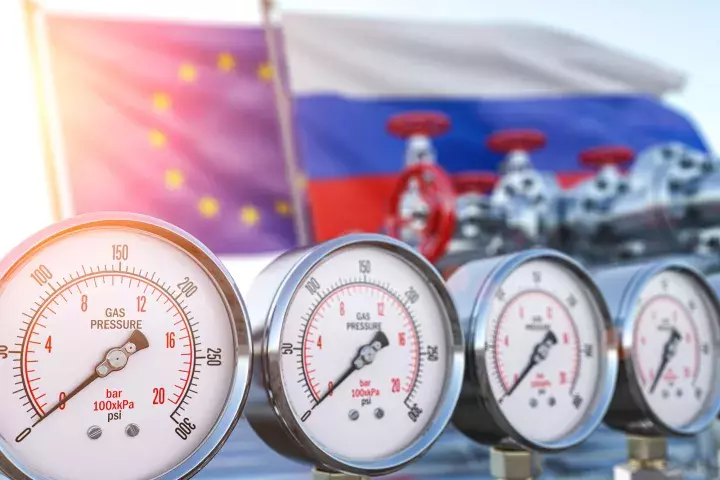
In addition to the technical regulations of the Eurasian Economic Union (EAEU), European and international companies must also comply with the applicable sanctions of the European Union and the United States when undergoing EAC certification. These regulations particularly concern the export of certain goods, trade with listed individuals and entities, and the provision of technical services. Non-compliance may not only jeopardize business relationships but also entail civil and criminal liability.
The situation is especially critical for exports to Russia and Belarus. Due to the geopolitical situation, numerous embargoes and restrictive measures have been imposed since 2014, which can directly affect the conformity assessment process. For example, it is possible that conformity assessment bodies or business partners in the affected countries are listed on sanctions lists, making cooperation legally impermissible. Therefore, companies must carefully review not only the technical regulations but also the current EU and US sanctions lists.
Another risk arises if a shipment is blocked due to sanctions violations. Even a formally correct conformity assessment does not provide legal certainty in such cases. Therefore, close coordination between compliance departments, export control officers, and certification partners is essential to avoid legal conflicts and to secure the supply chains.
Companies that aim to successfully export their objects of conformity assessment (products) to Kazakhstan, Russia, or other EAEU Member States should not focus solely on compliance with technical regulations but also ensure comprehensive sanctions compliance. This includes reviewing the end-use of products and selecting appropriate authorized representatives and local partners.
Schmidt & Schmidt provides a legally compliant solution via Kazakhstan. As an EAEU Member State, Kazakhstan is authorized to issue EAC certificates and EAC declarations. Through our local offices, we ensure that all conformity assessment processes are carried out in compliance with European and US sanctions regulations while enabling our clients to access the EAEU market.
Detailed information on current developments can be found in our article: EAC Certification Amid EU and US Sanctions against Russia and Belarus.
Costs of the EAC declaration
The costs for an EAC declaration depend on various factors. A flat price indication is not possible, since each object of conformity assessment must be evaluated individually. The main criteria are:
- Applicable regulations: relevant Technical Regulations (TR CU/EAEU)
- Type and complexity of the objects: design, number of components, variants
- Extent of testing: laboratory testing, safety and EMC evidence
- Completeness of documentation: technical documentation, drawings, test reports
- Samples for testing: selection of representative models is essential – selecting and sending samples correctly is part of cost planning
For the certification costs to be determined correctly, a technical evaluation of the object is necessary. For this, we usually require a product description and the customs tariff number. On this basis you will receive an individual offer.
Detailed information is available on our page Costs of EAC Certification and EAC Declaration.
Duration for EAC declaration procedure
The average processing time is usually several weeks, but may vary depending on the complexity of the project.
The processing time depends on the following factors:
- Object characteristics: complexity, number of components and variants
- Extent of testing: required laboratory testing, safety and EMC evidence
- Completeness of documentation: technical documentation, drawings, test reports
- Availability of samples: selection and dispatch of product samples for laboratory testing
Delivery of the documentation
If you order the EAC Declaration, you will receive a copy of it via email immediately after our successful certification procedure. The original document and two certified copies will be sent by post.

